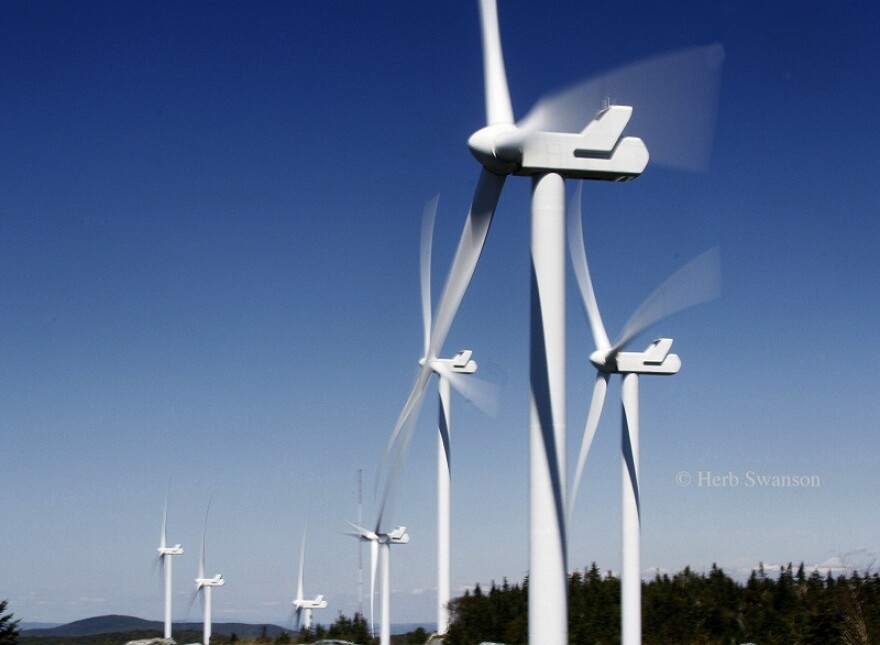This month, Vermont’s Public Service Board will begin re-examining the standards it sets for noise created by energy generation, including wind turbines. The Board says the review is triggered in part by ongoing complaints from neighbors of wind projects.
But a spike in turbine noise can be difficult to verify in a timely way.
On December 24, as Lowell Mountain was getting pelted with a wintry mix, Shirley Nelson says her windows—which are new—began to vibrate. She and her husband Don live at the foot of the Mountain, and they have been outspoken opponents of Green Mountain Power’s Kingdom Community Wind project. Christmas Eve, Nelson says, was not peaceful.
“When the turbines came on you just could hear it all through the house,” Nelson said.
She guesses that ice was hitting the turbines, and says the GMP did, as required, shut them down when the storm got worse. On the other hand, on January 2, she says turbines were running, despite visible ice. The Nelsons use their own recording device, and they keep what they call a “noise diary” to track times when they believe the turbines exceed the allowable 45 decibel limit. But even that legal level, Nelson says, can seem too loud.
“They talk about it being boots in a dryer or a refrigerator or something but if those were my appliances I would throw them out so quickly. I just can’t stand those noises,” Nelson said.
But what’s intolerable to one listener may be acceptable to another. GMP monitors decibel levels four times a year, for a two-week span. GMP spokesperson Dorothy Schnure says it’s important, in those tests, to stop the turbines and measure background noise that would be present without them.
“Is it windy, which makes noise, are there a lot of insects in the summer? What kind of background noises are there, so that we can then determine what kind of noises the turbines are actually making,” Schnure said.
Schnure says GMP gets frequent complaints from the Nelsons, but that others who live nearby find the noise acceptable. The Nelsons say the process for filing a formal complaint, which they did on December 24 and January 2, is cumbersome, and that neighbors rely on them to make those reports. But the Nelsons refuse to report directly to GMP, because they are being sued by the company for trespassing. So they send their complaints to the state’s Department of Public Service, which forwards them to the company.
Schnure, of GMP, says that’s not ideal.
“It would be really helpful if people report to us while they’re hearing the problem because we have staff on the mountain who can look into it immediately or even go to their home and experience what they are experiencing,” she said.
Meanwhile, neighbors of another wind project, on Georgia Mountain, recently complained that those turbines operated dangerously and noisily during an ice storm on December 21.
Geoff Commons is the Public Advocate for the Department of Public Service, and represents ratepayers before the Public Service Board. He says the Department will not comment on specific complaints, but notes it’s logistically difficult to schedule a noise monitoring session on short notice right after a complaint.
“And the wind changes like-- the wind-- and you can get up there and set up your equipment then people tell you that your monitoring was not helpful, does not capture what they’re experiencing,” Commons said.
Commons says written complaints will inform the PSB’s noise review process. But any change in standards would likely apply only to future projects, not to turbines already whirring.





